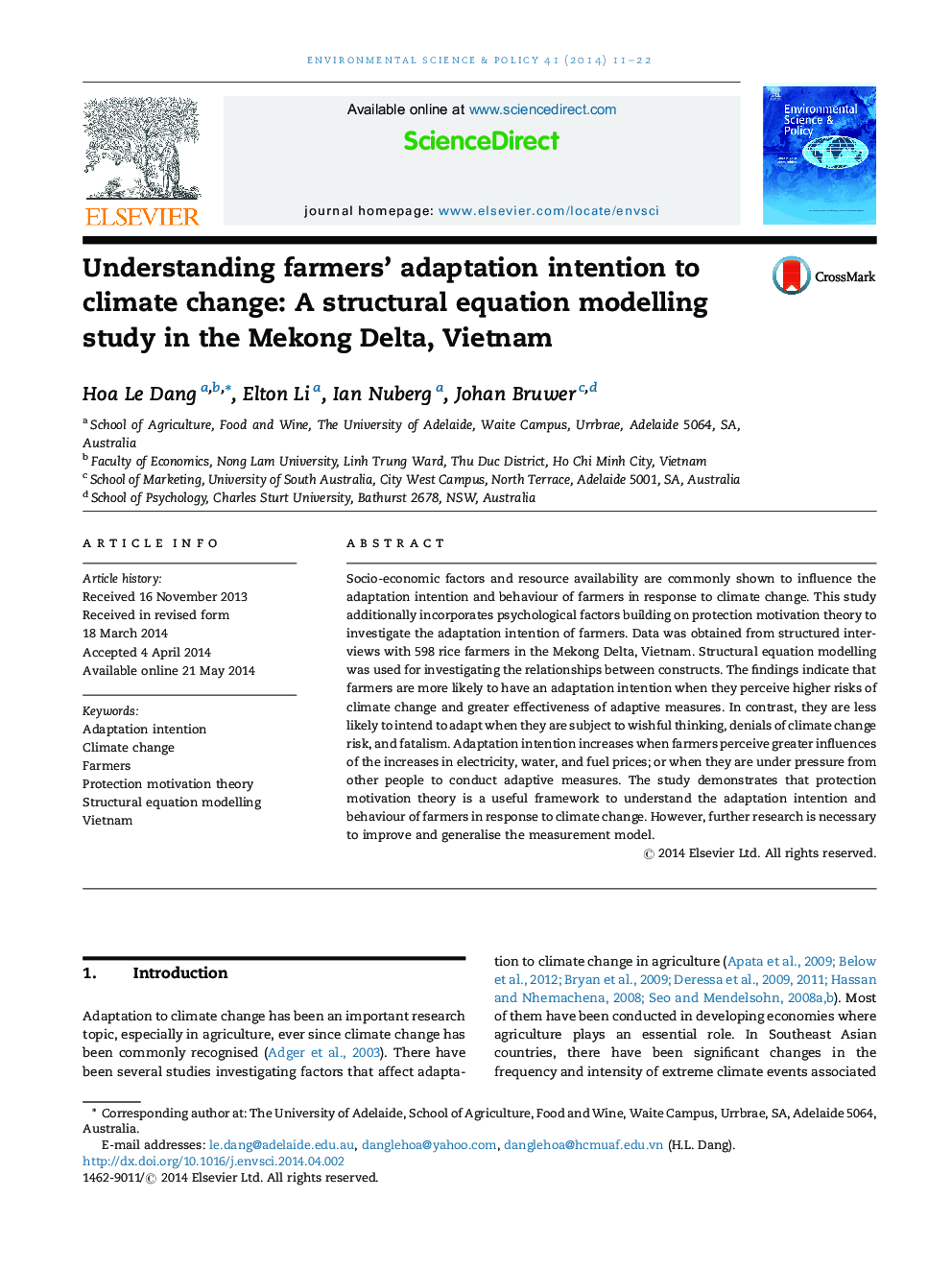| Article ID | Journal | Published Year | Pages | File Type |
|---|---|---|---|---|
| 1053571 | Environmental Science & Policy | 2014 | 12 Pages |
•We use structural equation modelling to investigate the influences of psychological factors on farmers’ adaptation.•Farmers with higher perceived risks of climate change are more likely to intend to adapt.•Farmers with greater perceived effectiveness of adaptive measures are more likely to intend to adapt.•Farmers with wishful thinking, denials of climate change risk and fatalism are less likely to intend to adapt.•Protection motivation theory is useful to investigate farmers’ adaptation intention in response to climate change.
Socio-economic factors and resource availability are commonly shown to influence the adaptation intention and behaviour of farmers in response to climate change. This study additionally incorporates psychological factors building on protection motivation theory to investigate the adaptation intention of farmers. Data was obtained from structured interviews with 598 rice farmers in the Mekong Delta, Vietnam. Structural equation modelling was used for investigating the relationships between constructs. The findings indicate that farmers are more likely to have an adaptation intention when they perceive higher risks of climate change and greater effectiveness of adaptive measures. In contrast, they are less likely to intend to adapt when they are subject to wishful thinking, denials of climate change risk, and fatalism. Adaptation intention increases when farmers perceive greater influences of the increases in electricity, water, and fuel prices; or when they are under pressure from other people to conduct adaptive measures. The study demonstrates that protection motivation theory is a useful framework to understand the adaptation intention and behaviour of farmers in response to climate change. However, further research is necessary to improve and generalise the measurement model.
